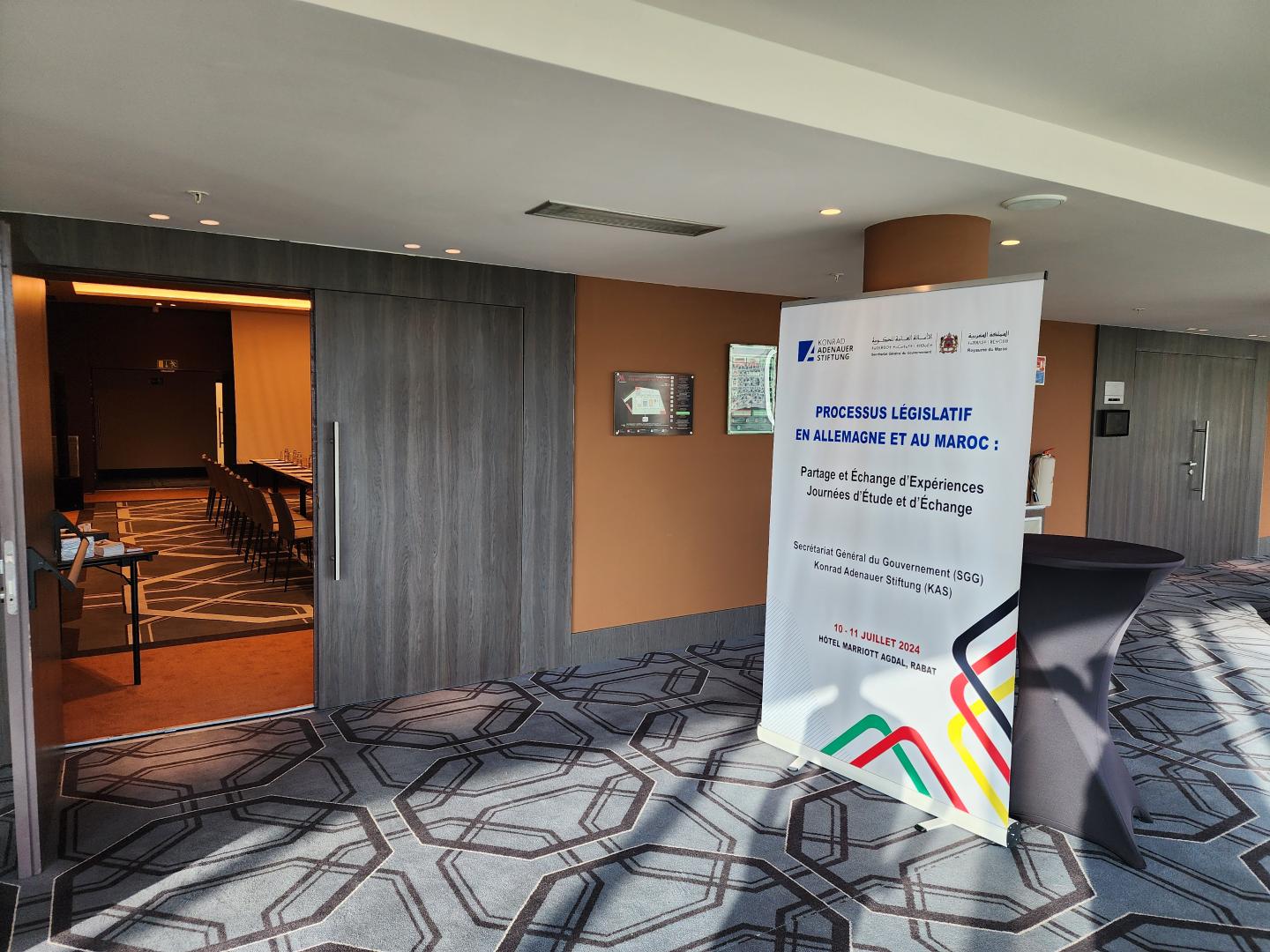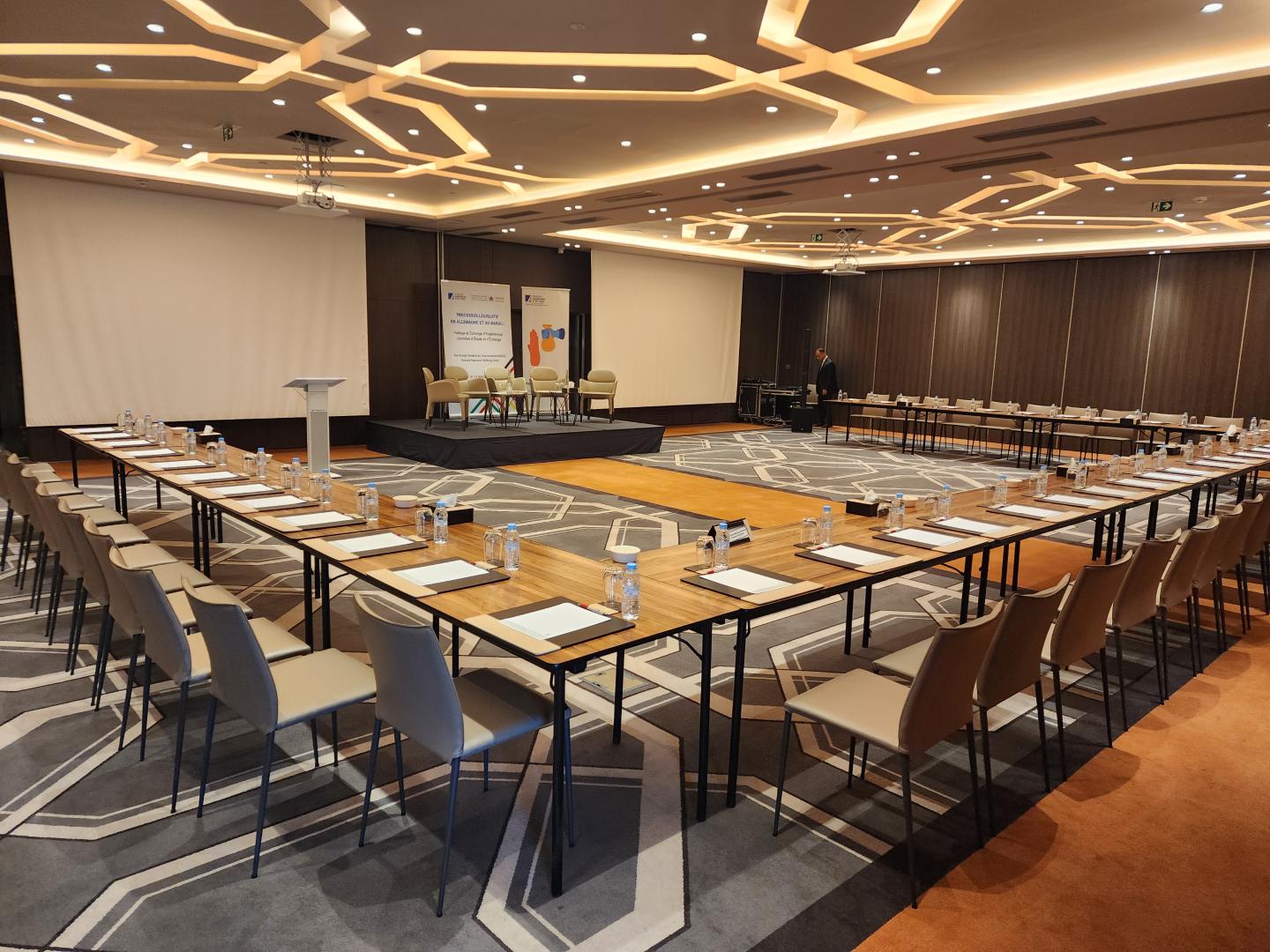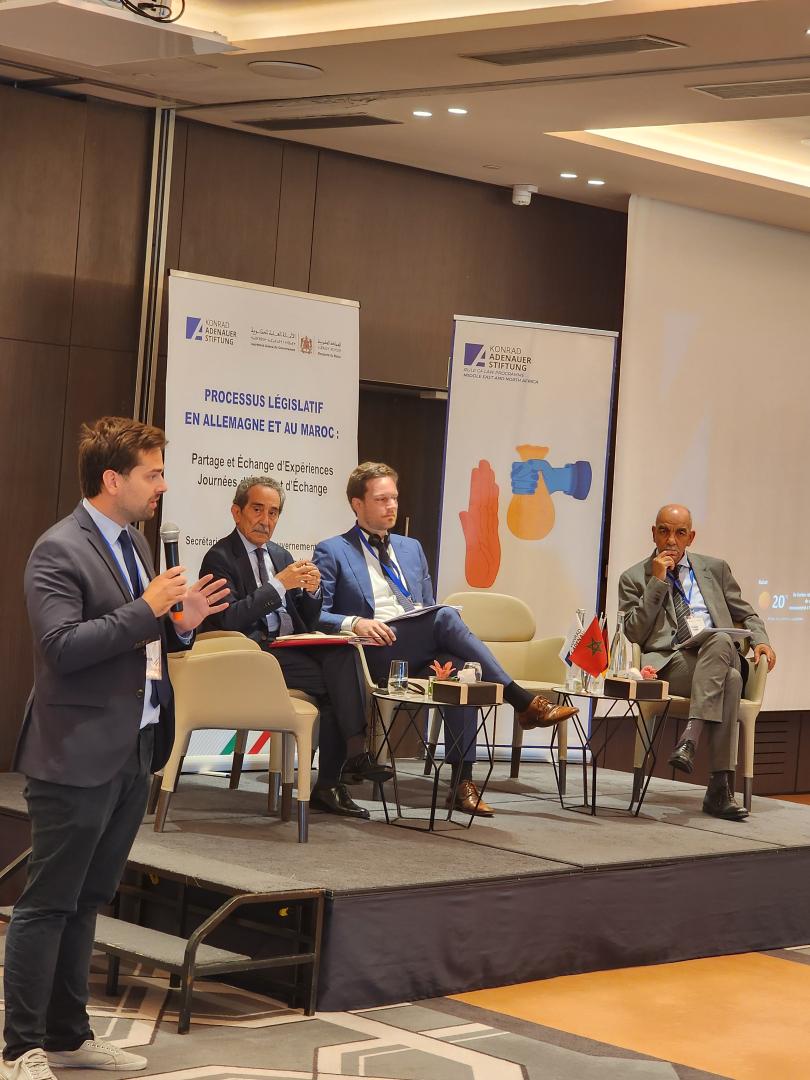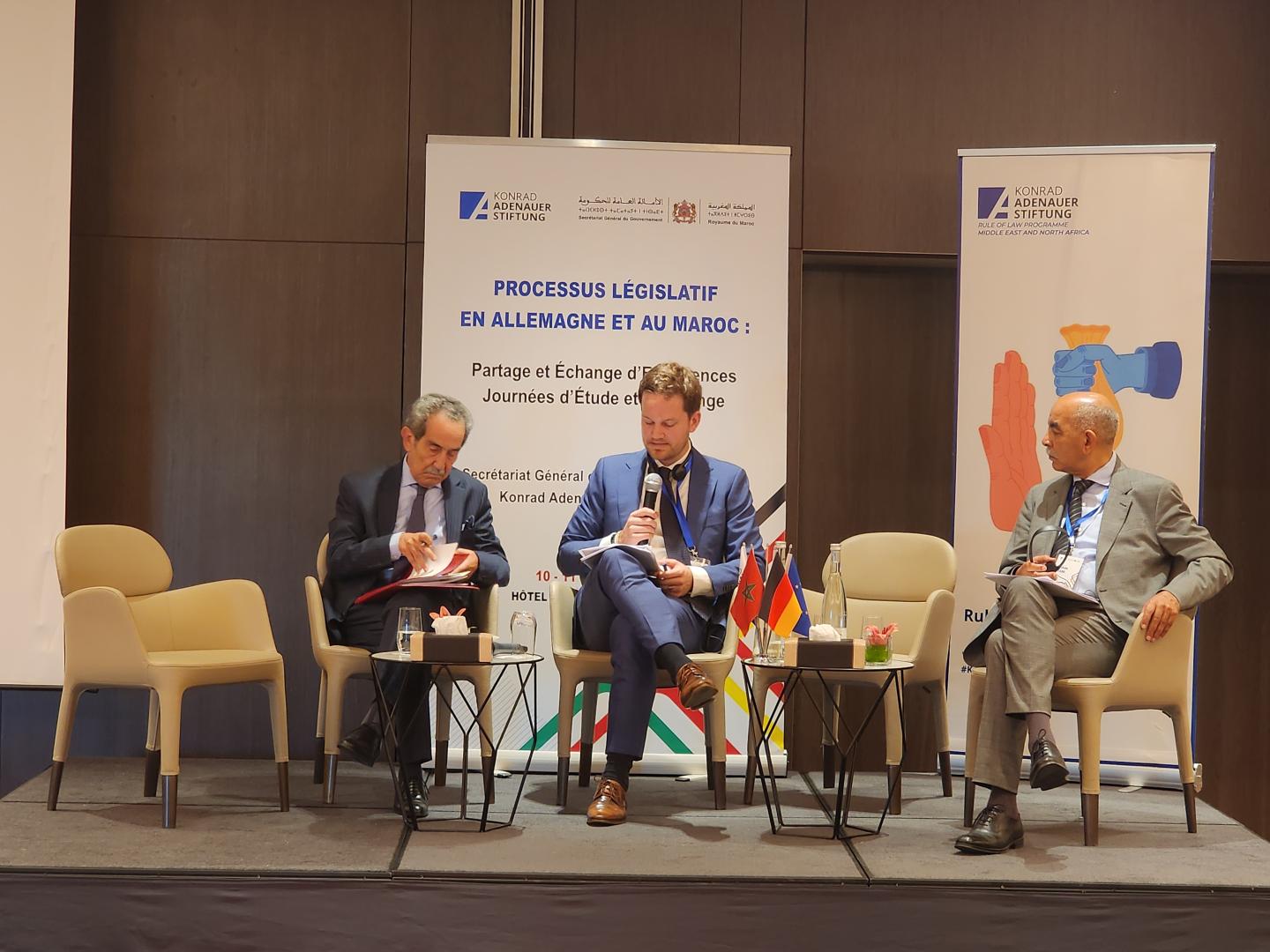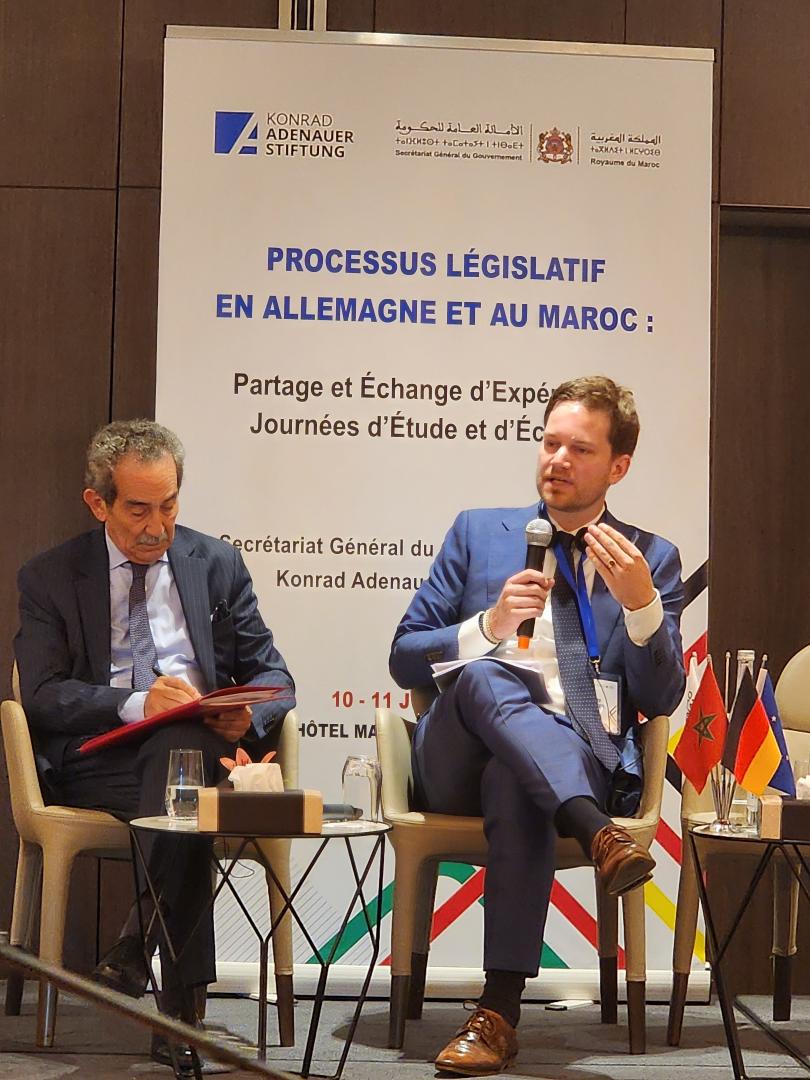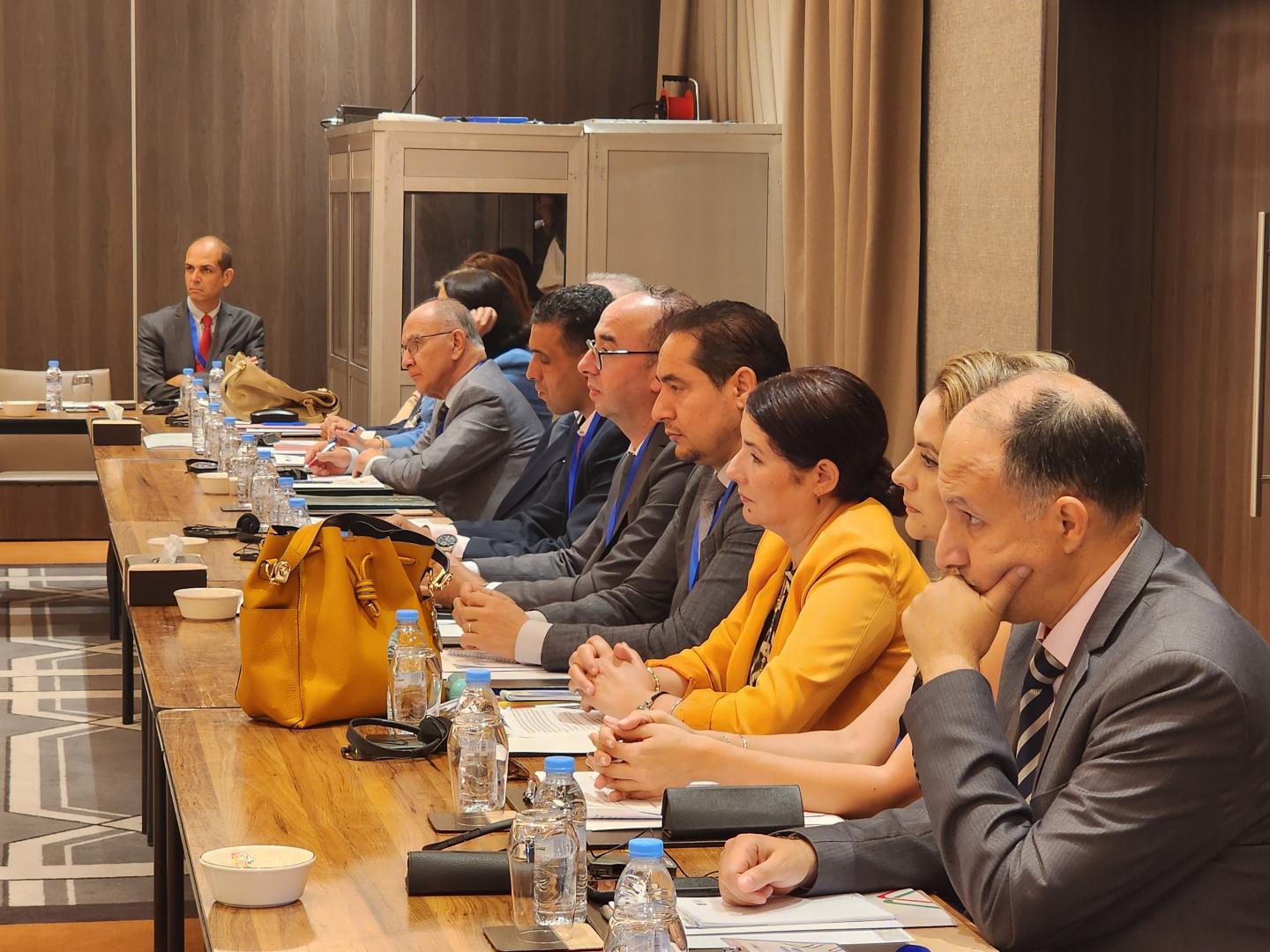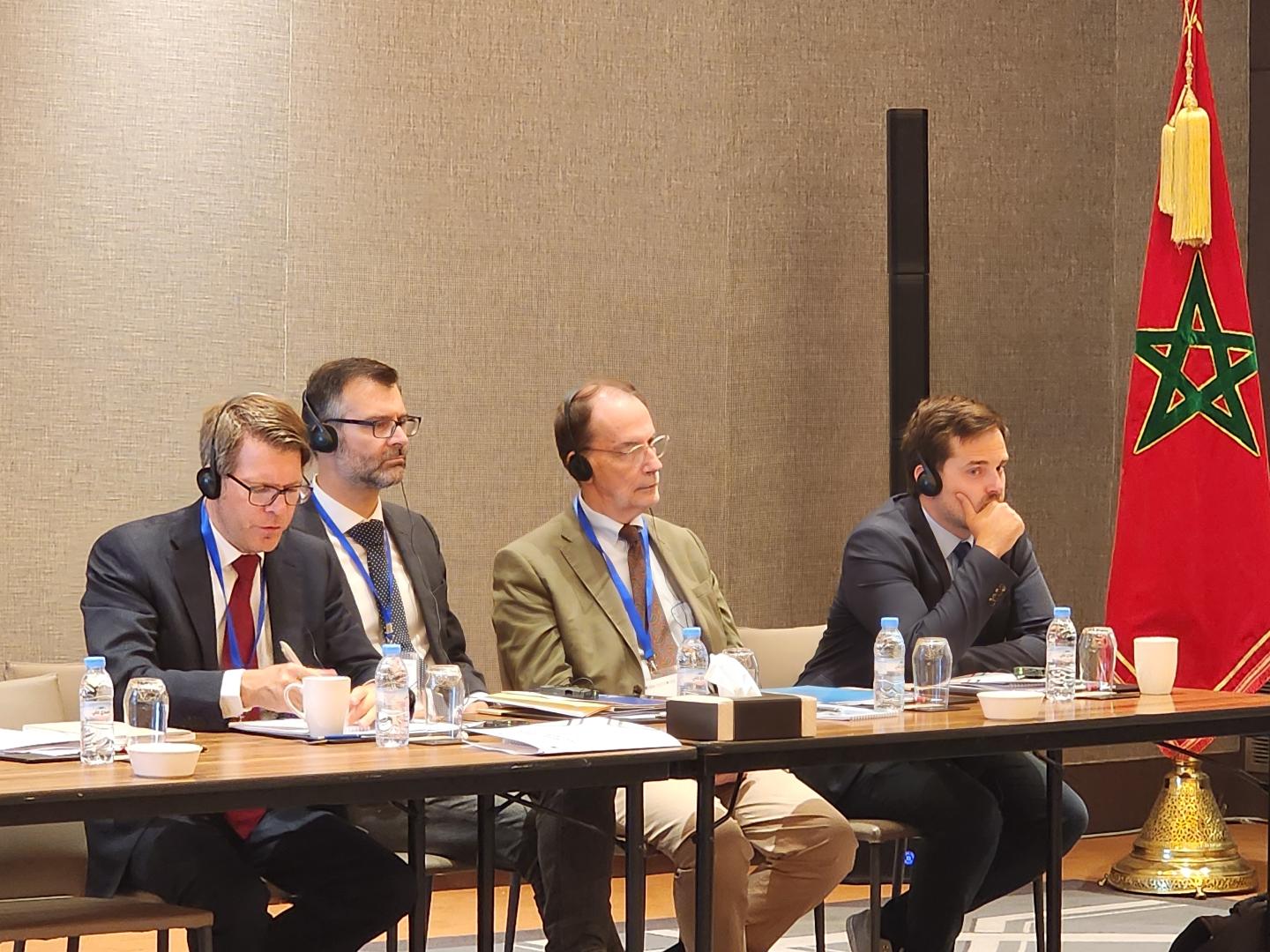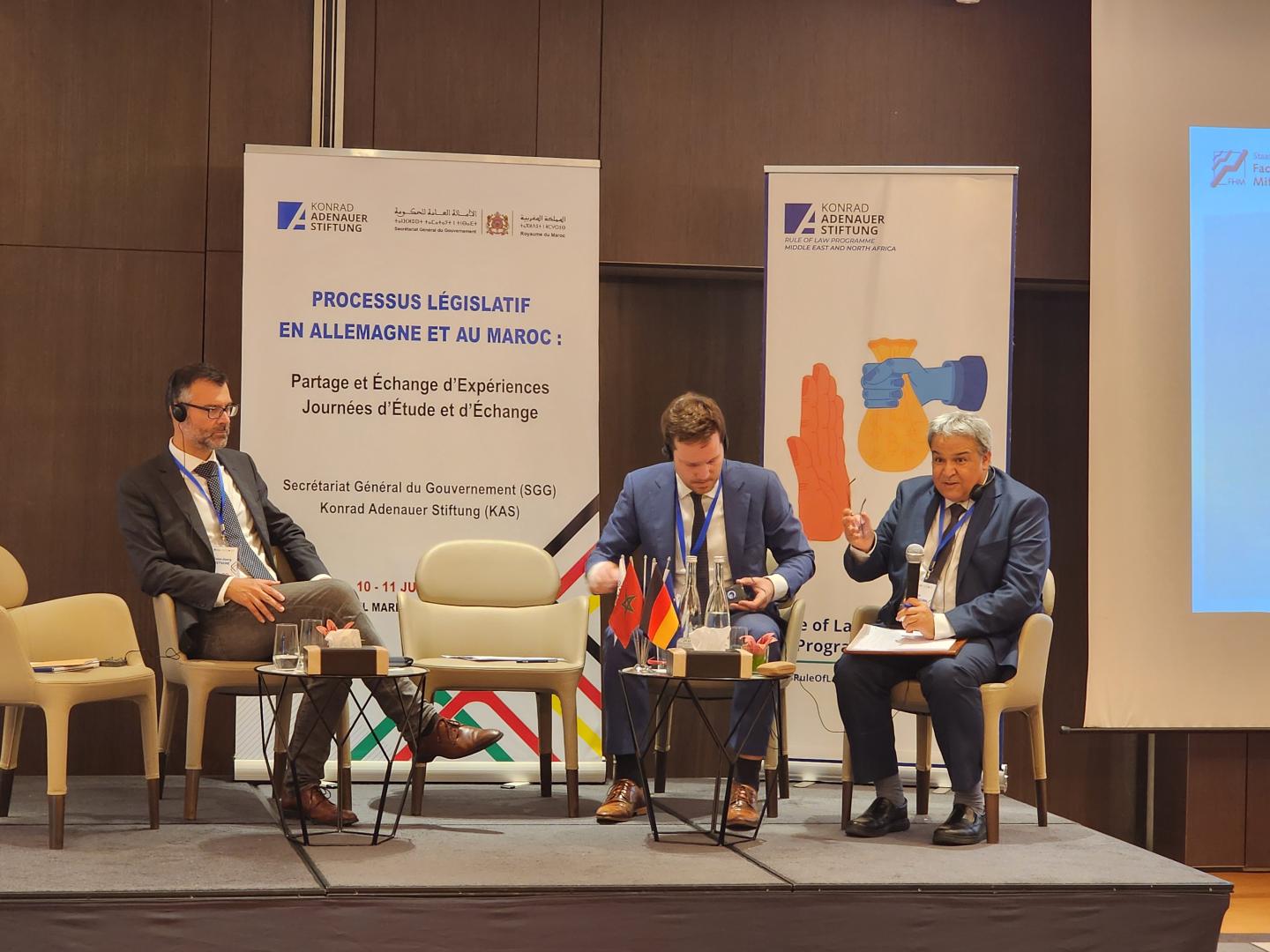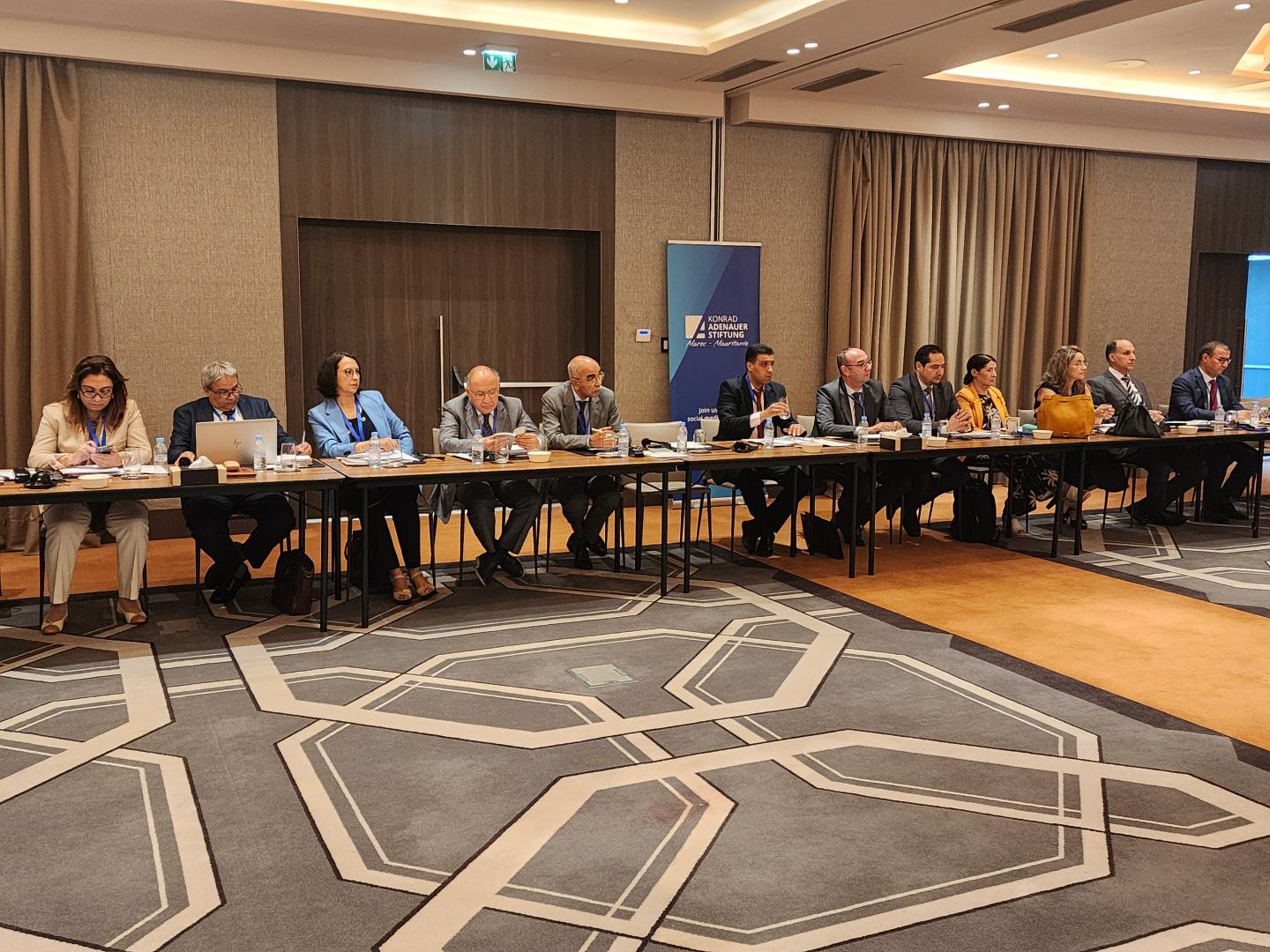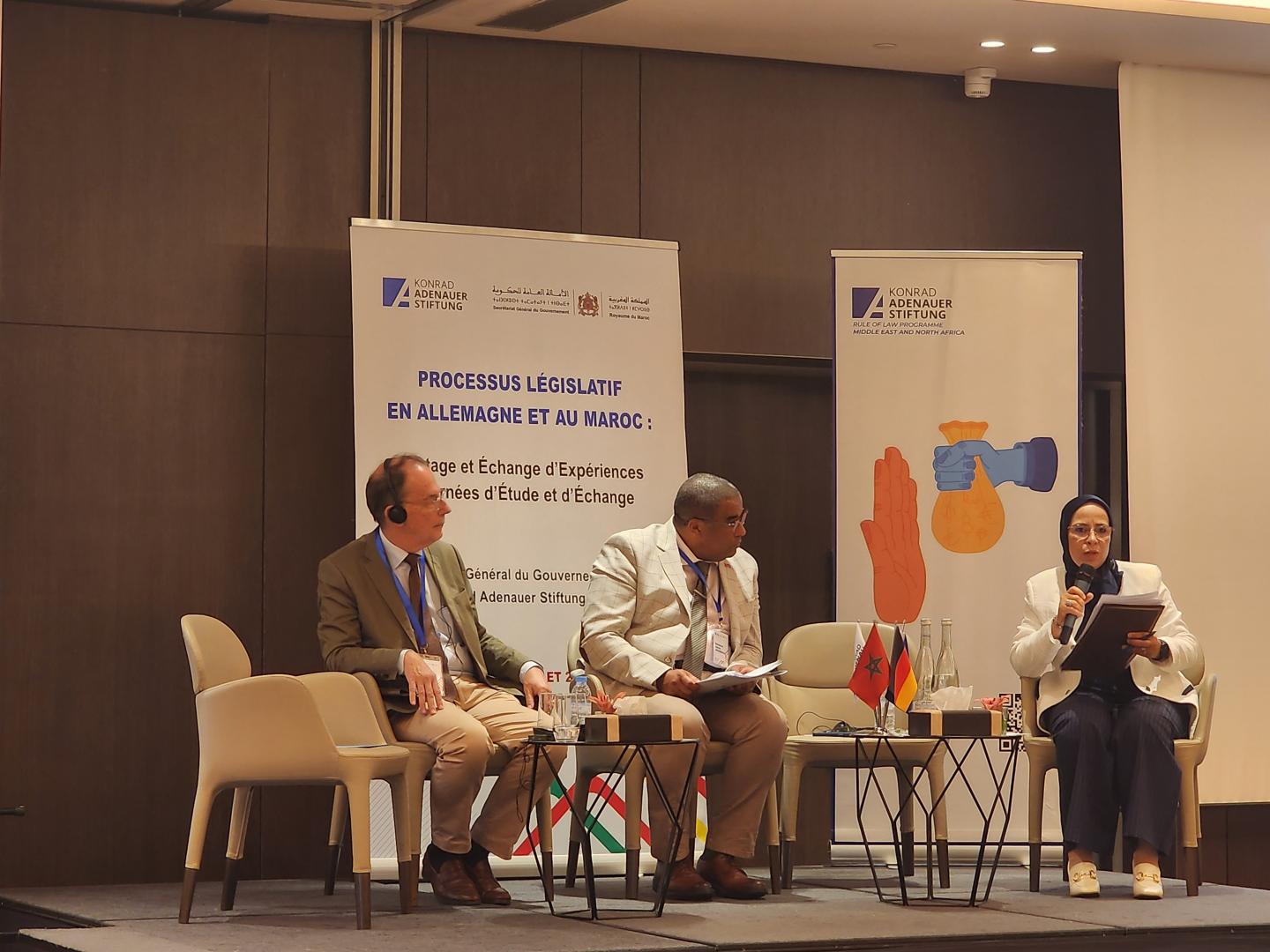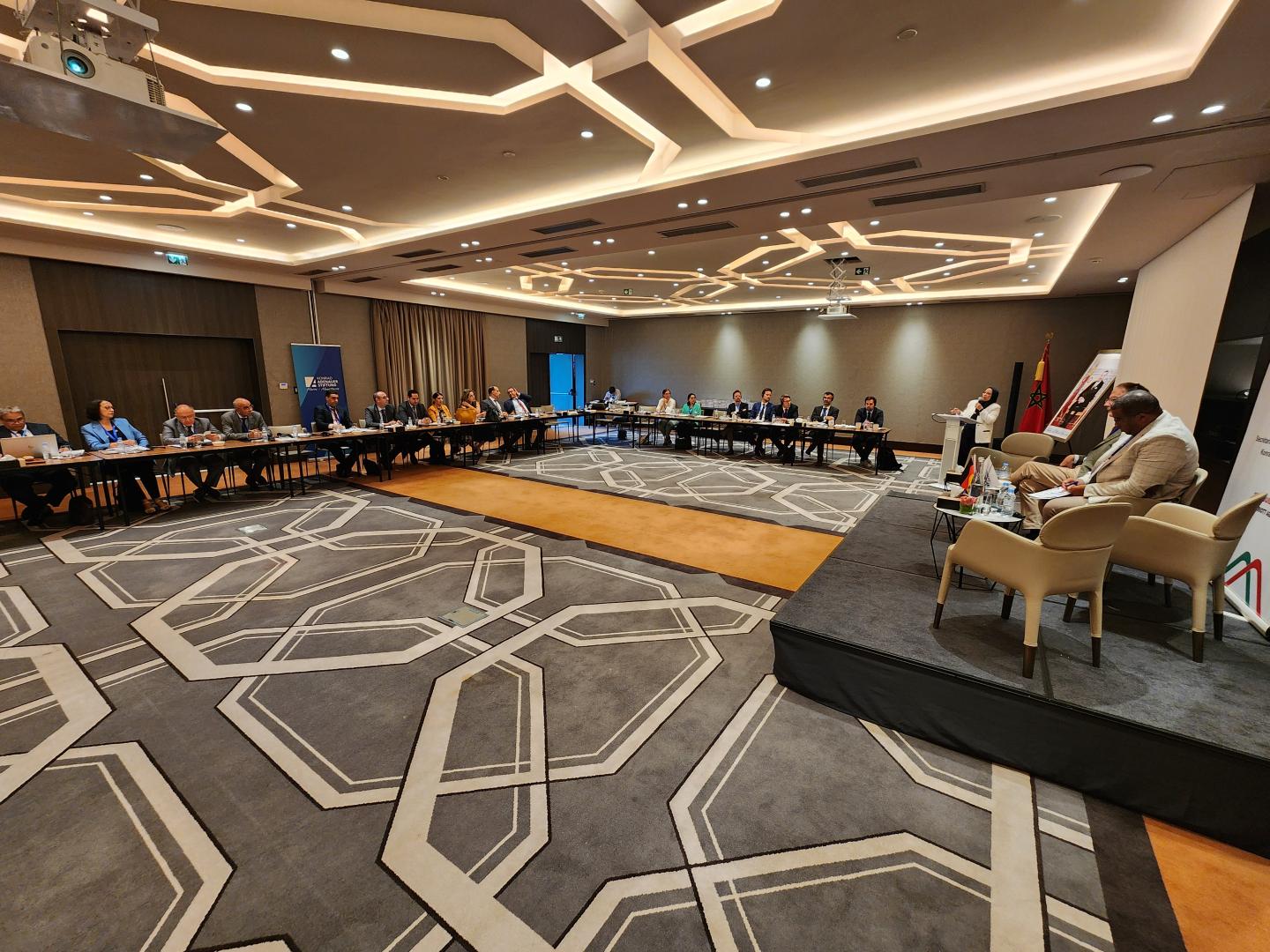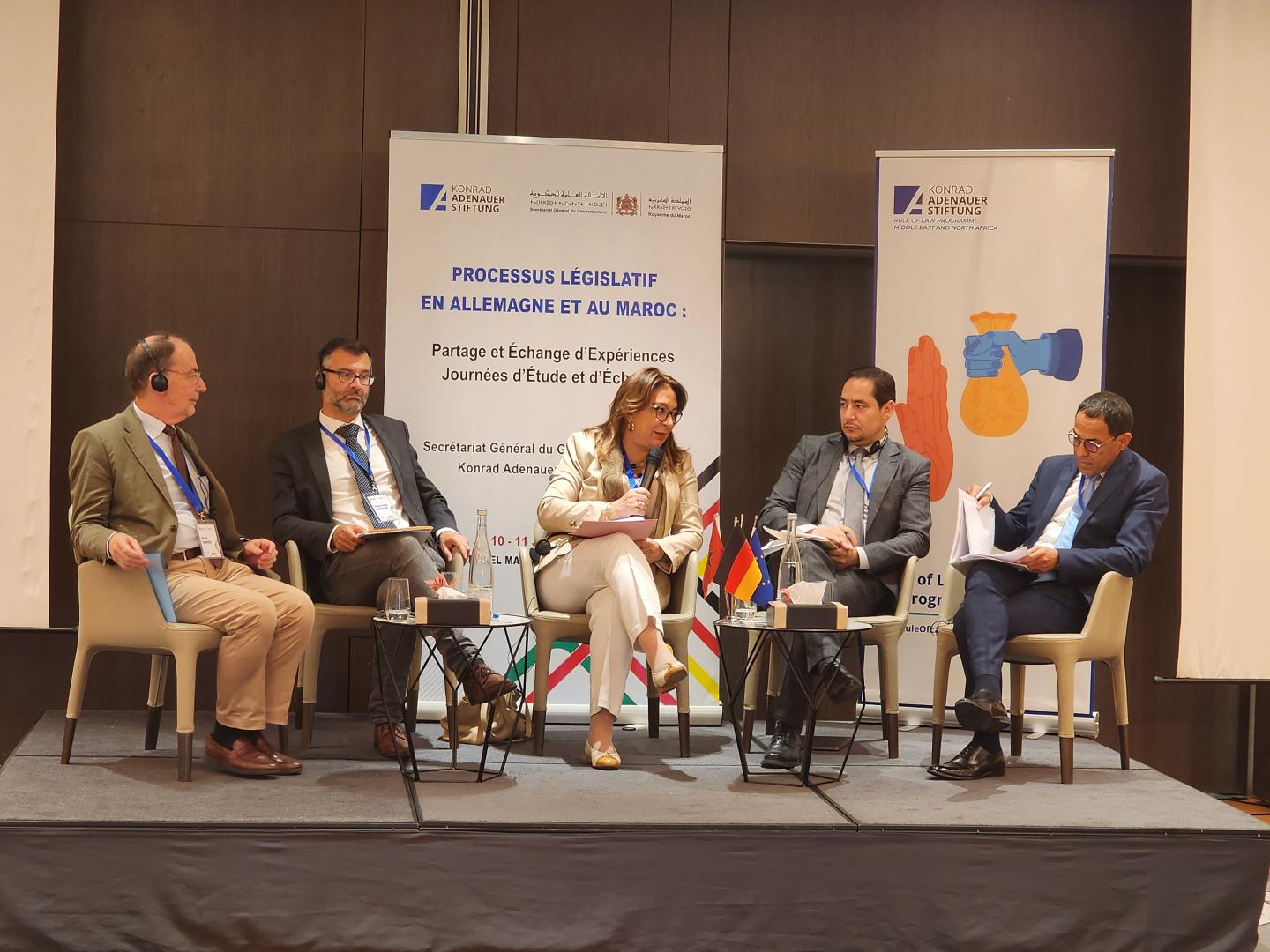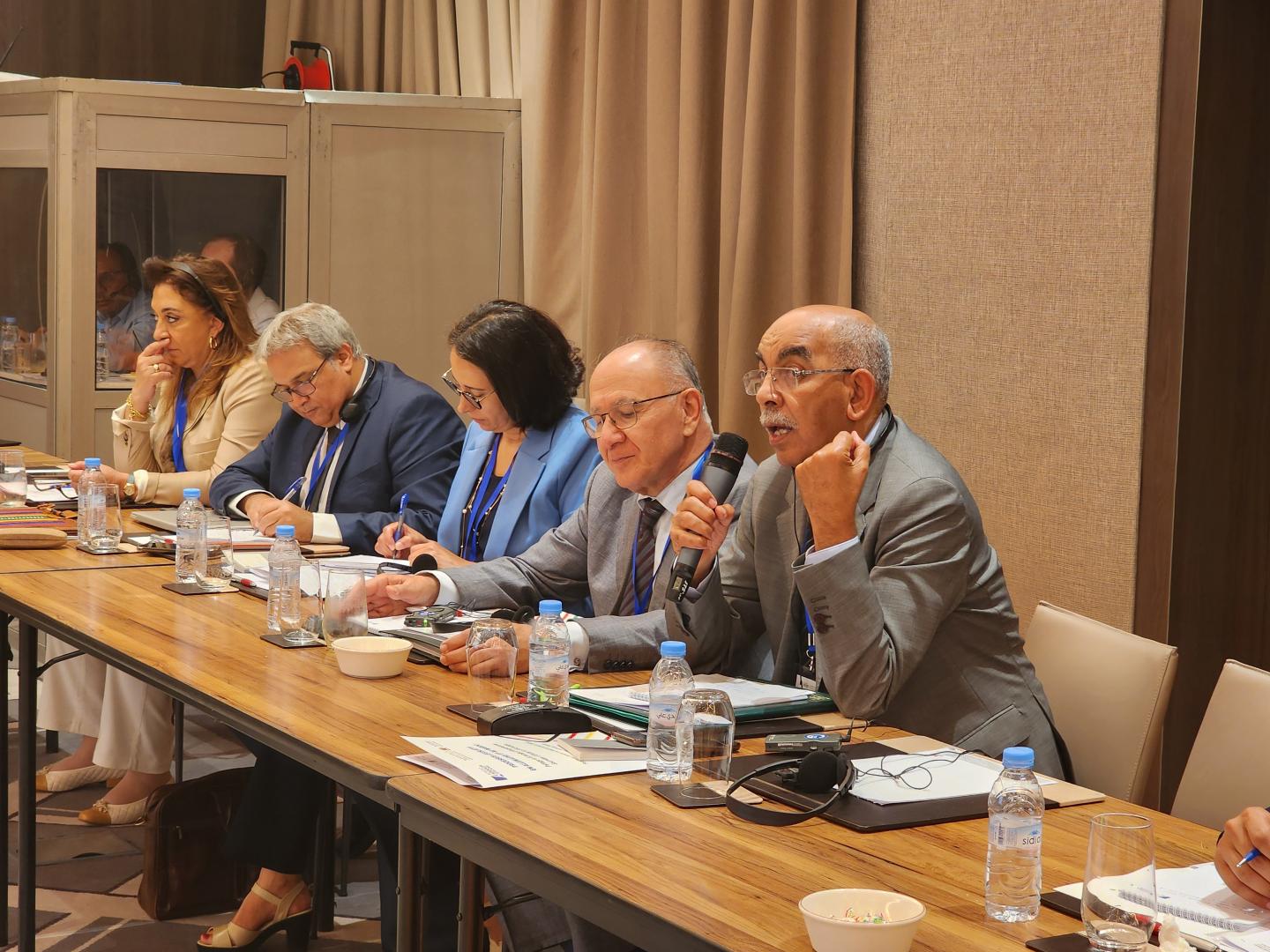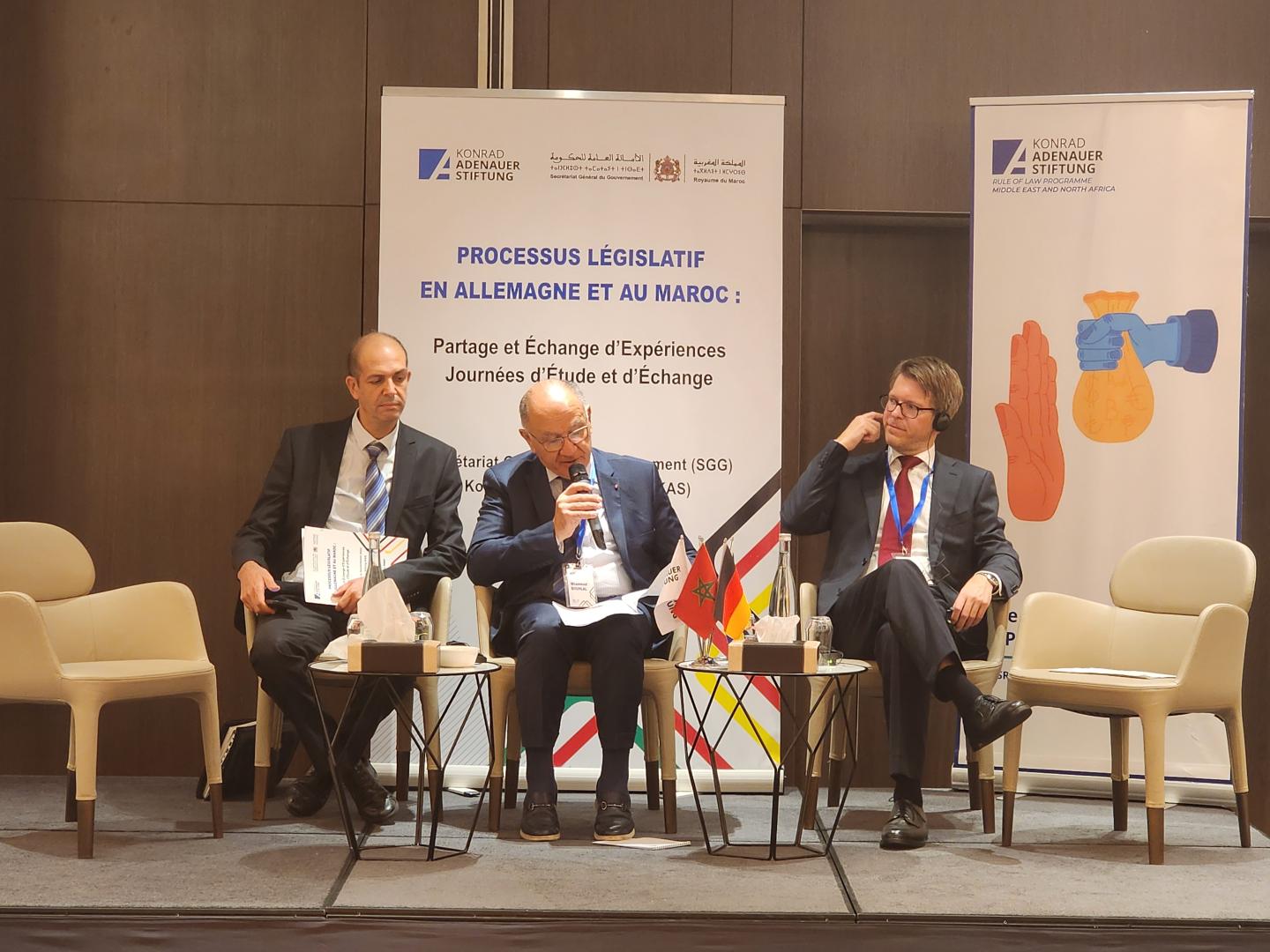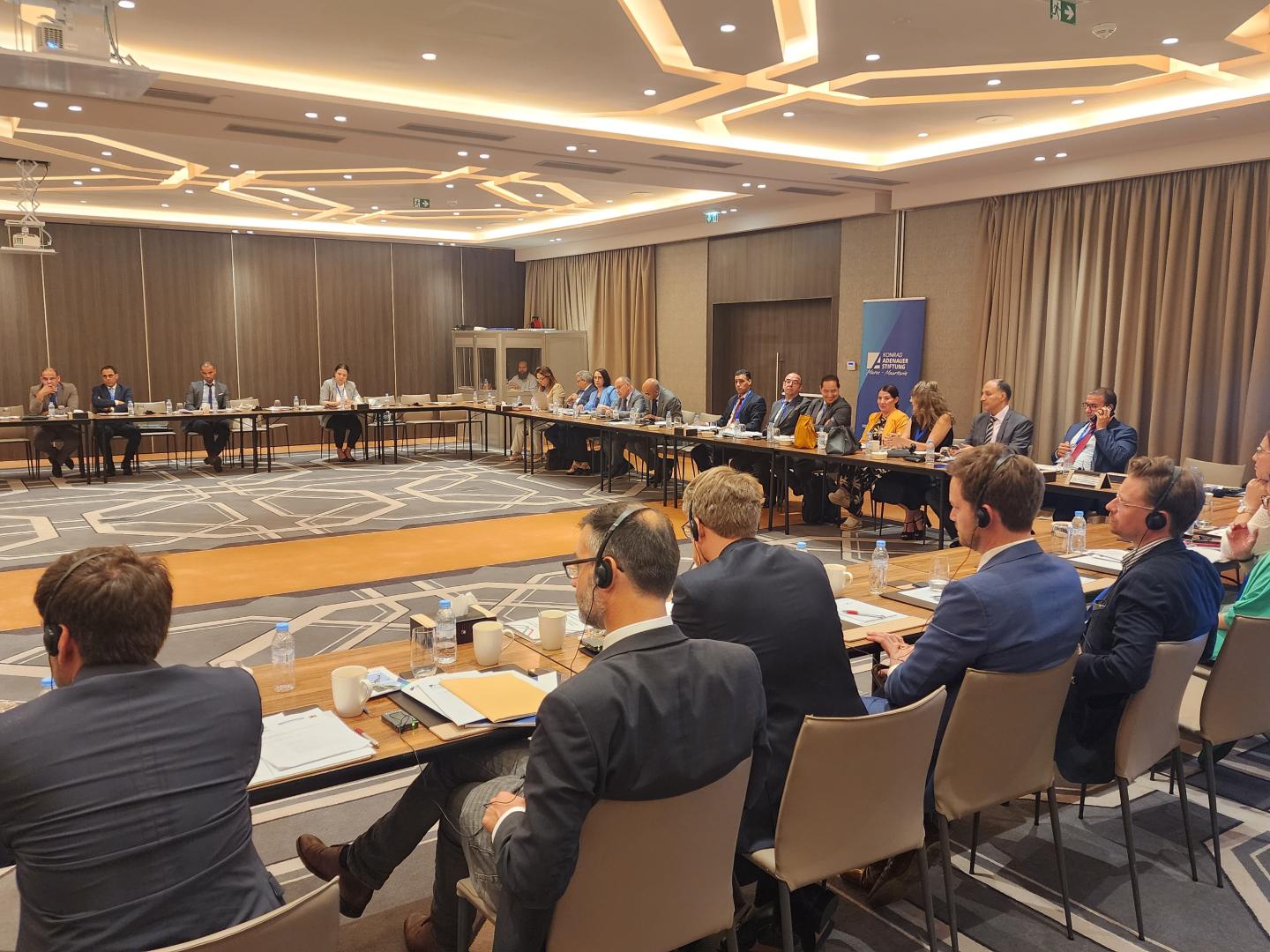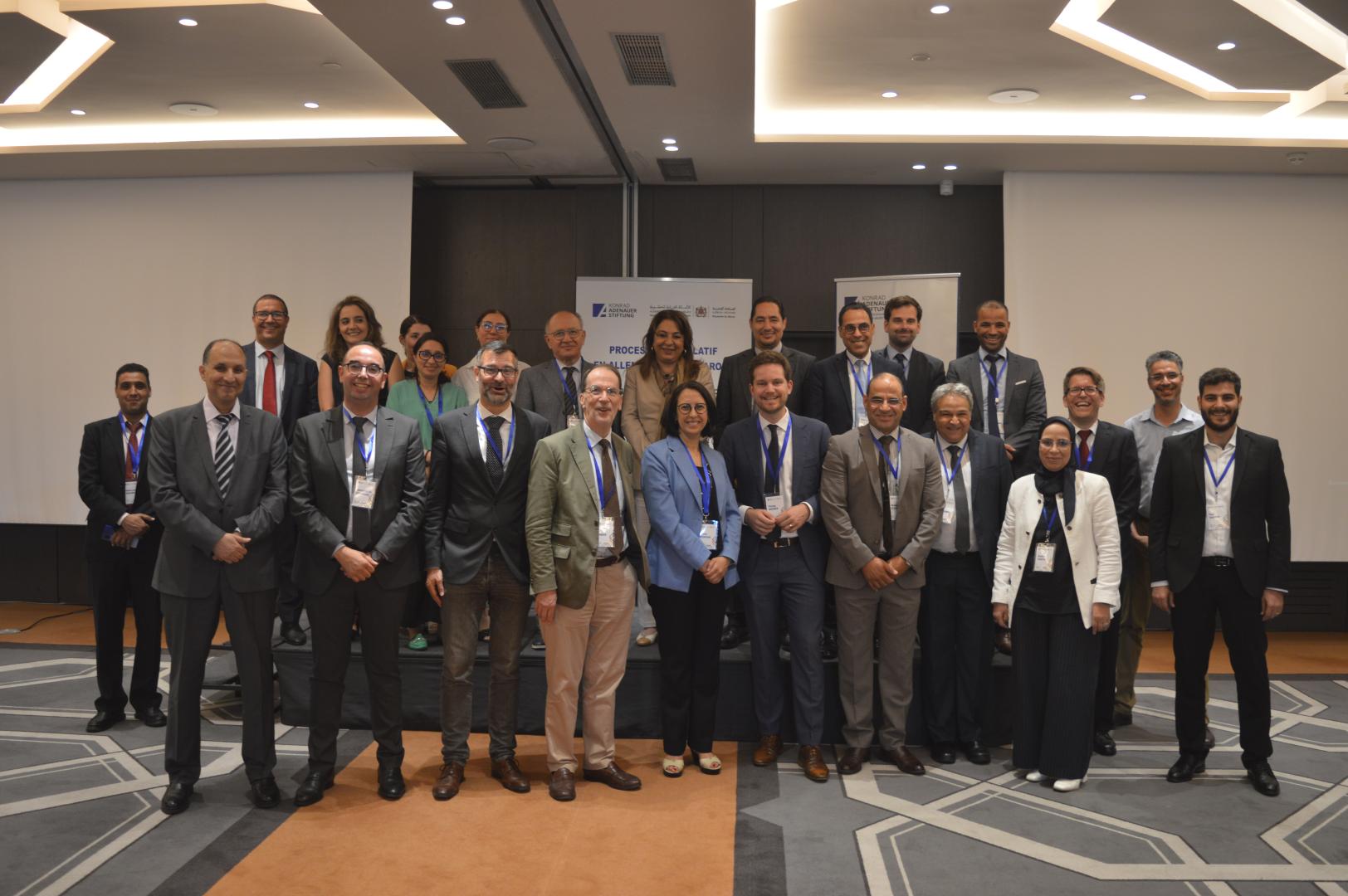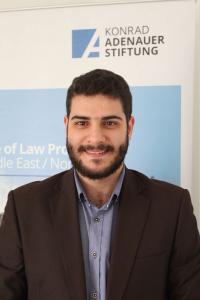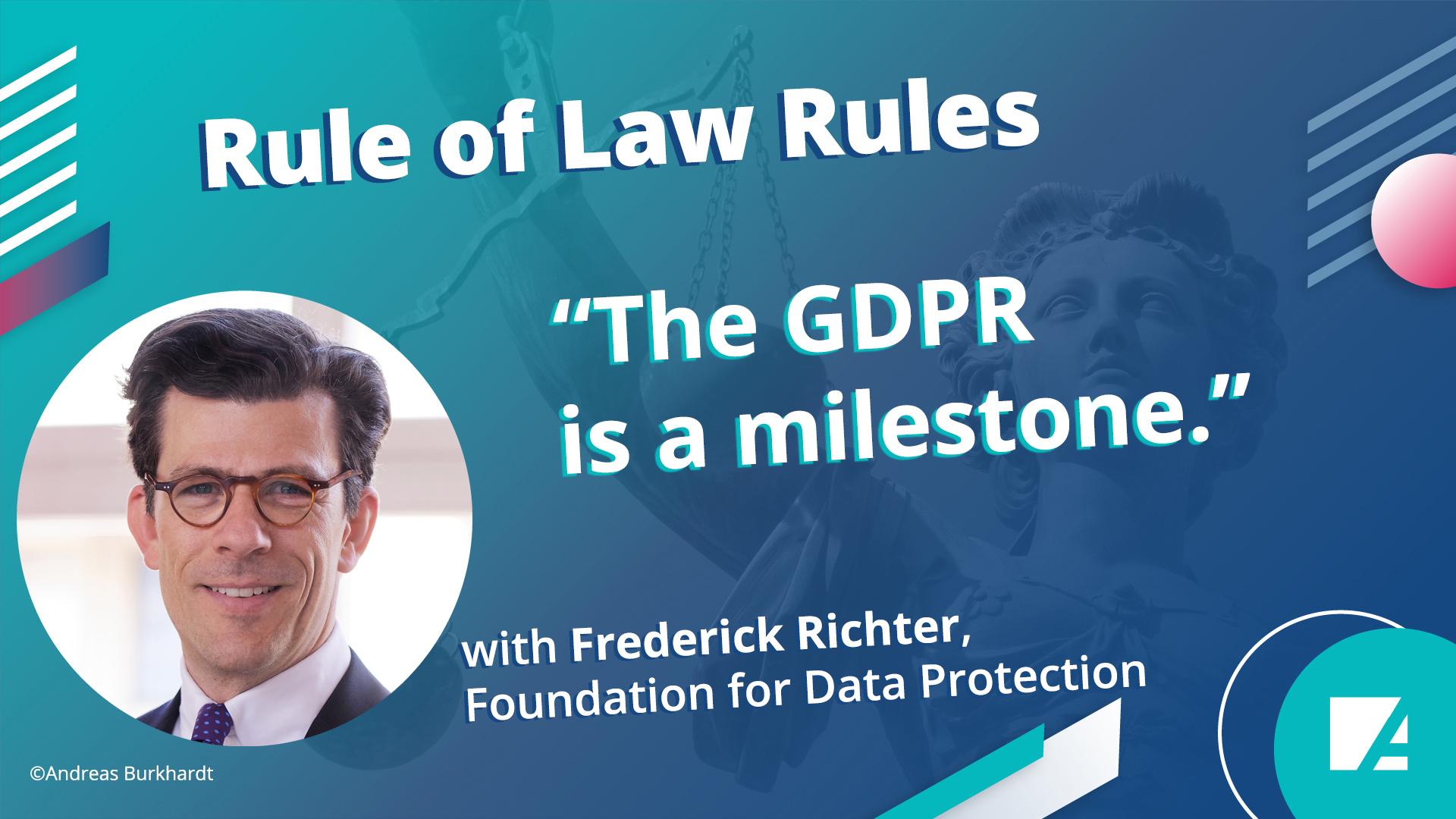Legislative processes constantly evolve through time and are different from country to country. They depend on the laws and society they are developed for and must be continuously evaluated and improved, much like the laws themselves, that are at the core of the process. During this essential evaluation current trends and developments must always be assessed and considered.
This two-day workshop was a great opportunity for likeminded experts to engage, exchange, debate and discuss key issues and topics related to the evaluation of laws in both Germany and Morocco.
The event started by a warm welcome to all the present experts from Mr. Steven Höfner, Head of the Konrad Adenauer Foundation’s office in Morocco.
The first opening remark was from Mr. Bensalem Belkourati, General Director of Legislation and Legal Studies at the General Secretary of the Government. Mr. Belkourati underlined the importance of developing legal procedures that would enable the legislative process to be more efficient and sustainable.
In the next opening remark, Mr. Philipp Bremer, Director of the KAS Rule of Law Programme Middle East and North Africa (MENA), stated that evaluating legislation presents a unique set of challenges that somewhat mirrors the complexities of evaluating projects. When assessing a law, we must consider its objectives, effectiveness, and unintended consequences. Similarly, evaluating a project requires a thorough understanding of its goals, outcomes, and the broader impact on its audience or stakeholders. One significant challenge in both areas is measuring success. For legislation, this means not only achieving policy goals but also ensuring positive societal impact without adverse side effects.
The last opening remark was given by Mr. Brahim Zyani, Head of the Office of H.E. the Prime Minister. He pointed out the great prerogatives the General Secretary of the Governments has when it comes to evaluating laws. He also highlighted the need for and importance of such workshops.
Afterwards, and over the course of 2 days, 4 consecutive sessions were held. They can be summarized as follows:
The first session, entitled “The legislative process: general overview”; moderated by Mr. Philipp Bremer.
1)-Input by Prof. Nadir Elmouni, Professor of constitutional law at the Faculty of Legal, Economic and Social Sciences, Mohammed V University-Rabat.
Professor Elmouni’s speech was about: The Moroccan legislative process – a general overview. He tried to describe the origin of the terminology “legislative process”. During his speech, Prof. Elmouni, named and explained the four main characteristics of the legislative process in Morocco, which were, as he quoted: “openness, efficiency, quality and inclusion". He then provided concrete examples, precedents and constitutional stipulations related to the matter.
2)- Input by Prof. Dr. Hans-Jörg Dietsche, Honorary professor at the University of Applied Sciences for Small and Medium-Sized Enterprises (FHM).
Prof. Dietsche’s presentation was about a general overview to the German legislative process. He began by mentioning the importance of having clear and comprehensive laws, in a way that all citizens can grasp and understand. Prof. Dietsche explained the legislative process in Germany on different levels (Federal level and Landers level). He even pointed out the role of the mediation committee in case of a clash between the “parliament” and the “senate”.
The second session, entitled "Evaluation of laws: between law and practice" – moderated by Mohamed Zakaria Aboudahab, Professor of constitutional law at the Faculty of Legal, Economic and Social Sciences, Mohammed V University-Rabat.
1)- Input by Mrs. Wafaa Shafiq, Legal advisor to the General Secretariat of the Government.
Mrs. Shafiq tackled the Evaluation of laws in Morocco. She detailed the ex-ante and ex-post evaluation of legal texts, delimiting the prerogatives and roles of the relevant and respective institutions and committees within the Moroccan legislative system.
2)-Input by Dr. Bertil Sander, Former deputy head of the secretariat of the National Regulatory Council.
Dr. Sander highlighted in his speech two main points. The first one being the evaluation of laws in Germany and the second one being the experience of the National Regulatory Council - National Normenkontrollrat (NKR) as an independent administration, not affiliated neither to the parliament nor to the government. Furthermore, Dr. Sander mentioned the impact public policies and politics have on legislation.
The third session, entitled "Coherence and distribution of legislative norms"; moderated by Nadia Bernoussi, Professor of Constitutional law, former member of the Consultative Commission for the revision of the Constitution.
1)- Input by Mr. Taoufik Elhami, Legal Advisor, Head of the Public Establishments, Local Authorities, Investment and Health Sectors.
Mr. Elhami tackled Law and regulations in Morocco. He made a brief of the evolution of legislative process that happened after each constitutional amendment, in year 1962, 1972 and 2011 – especially to the relation between the parliament and the government. Mr. Elhami said that nowadays and based on the observation made, the government is becoming a “normal legislator”, initiating legislative procedures more than the parliament itself.
2)- Input by Prof. Dr. Hans-Jörg Dietsche.
Dr. Dietsche’s contribution was about the distribution of legislative powers between the Federation and the Länder in Germany. He also explained the difference before and after the constitutional amendment of the year 2006.
3)- Input by Mr. Hassan Yaagoub, Legal Advisor, Agriculture and Fishing Sector Section.
The main topic presented by Mr. Yaagoub was about harmonization of national legislation with Morocco's conventional (treaties) commitments. Especially following the 2011 new constitution that consecrated the supremacy of international conventions over the national legislation. Me. Yaagoub stated that “the harmonization of national and international legal texts is a continuous and an ongoing task”. He highlighted the pre-requisites for ratifying an international treaty.
4)- Input by Dr. Bertil Sander.
Dr. Sander tackled the consistency of laws in Germany with European Union standards: Transposition techniques and constraints. Dr. Sander stated that the difference in legal terminology within the European Union might sometimes cause real issues. He added another limit which is the legislation’s financial cost, that most of the time is neglected.
The fourth session, entitled "Society, public policies and legislative process"; moderated by Mhammad Bouhlal, Legal advisor to the SGG, head of procedures, publications and monitoring section.
1)- Input by Mr. Toufic Mediani, Legal Advisor, section of the public establishments, local authorities, investment and health sectors.
Mr. Mediani tackled the impact of legislative measures on stakeholders and on the Consolidation of the rule of law via presenting three practical cases: (1) the legal framework relating to the protection and promotion of the rights of people with disabilities; (2) the legal framework for social protection; & (3) the new legal framework for investment in Morocco.
2)- Input by Dr. Tillmann Schneider, Independent consultant for judicial sector reform, Advisor on human rights and organizational development.
Dr. Schneider contribution was about the challenges related to measuring the impact of laws and how this can be integrated into the legislative process. He questioned the said fact that legislation does reach their intended goal. He differentiated between the direct and indirect objectives of a law. Dr. Schneider added that we should sometimes find legal procedures outside of the traditional legal framework.
Far more topics and concepts were debated. It is worth noting that each session was followed by an extensive Q&A and a lively discussion. We are pleased that all the participants considered this workshop to be successful and fruitful.
Towards the end of the workshop, closing remarks were given by Mr. Abdelkhalak Edahmani, Legal advisor to the SGG, who provided a well elaborate report on those two days; Mr. Brahim Zyani and Mr. Philipp Bremer. At this point, the workshop came to an end.



